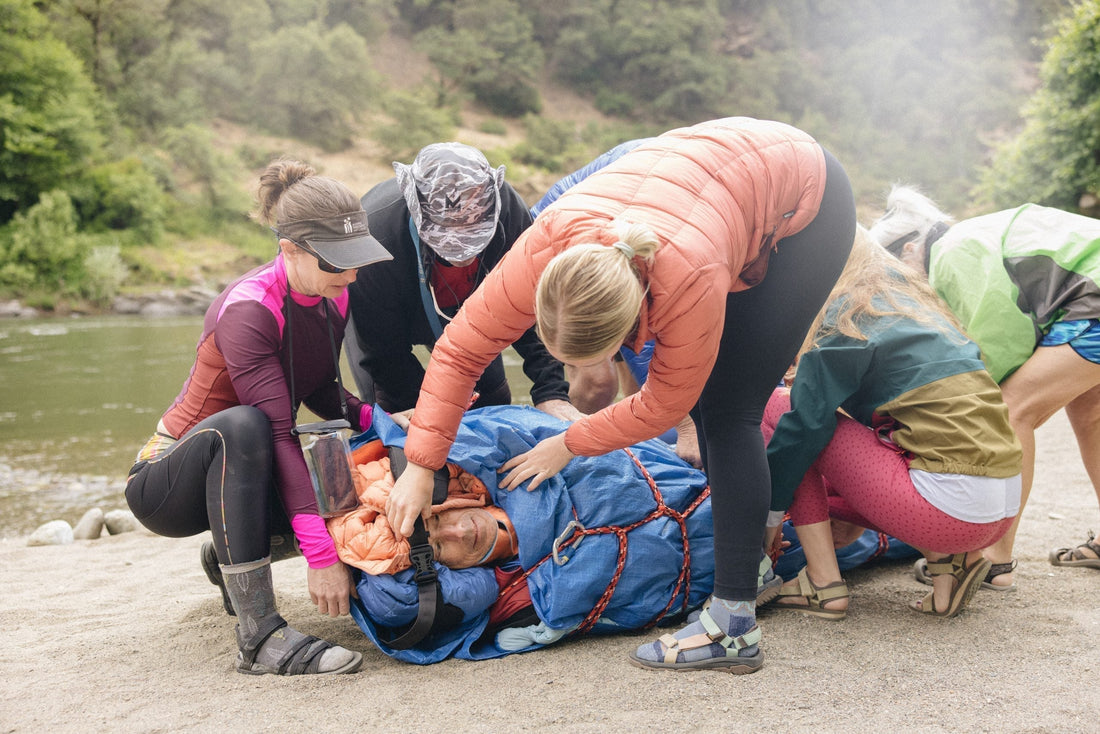
How remote medical training benefits professional/personal development
Gain Skills You Can Use Anywhere in the World
No matter your specialty or clinical setting as a healthcare professional, wilderness medicine training can be incredibly beneficial for both your professional and personal development.
At MedTreks, we offer several wilderness medicine courses each year and are consistently amazed by how well-received they are by participants—regardless of their medical background. If you’re hesitant to sign up for a wilderness medicine certification course, or if you’re having trouble explaining to your employer why such a certification could benefit your professional growth, here are a few key points to consider and share:
Professional Development:
Expanded Medical Skills:
Wilderness medicine certification courses cover a wide range of medical scenarios and skills not typically encountered in traditional clinical settings. This includes managing injuries and illnesses in remote or resource-limited environments. Acquiring these skills makes participants more versatile and confident medical practitioners.
Specialized Expertise:
A wilderness medicine certification demonstrates specialized expertise in managing medical situations outside of typical healthcare facilities. It’s a valuable asset for healthcare professionals working in outdoor, remote, or disaster response settings. It’s also an excellent course for medical or nursing students.
Critical Thinking and Problem-Solving:
Wilderness settings pose unique challenges, requiring participants to think creatively and adapt to limited resources. This experience sharpens critical thinking and problem-solving skills that are applicable in a wide variety of medical and non-medical contexts.
Improved Patient Care:
Learning how to deliver medical care with limited resources and in unique conditions can enhance patient care even in well-equipped environments. The adaptability gained from wilderness training helps healthcare professionals respond effectively to unexpected situations.
Enhanced Communication and Leadership:
Wilderness environments often demand strong communication and teamwork. Participants learn to lead and collaborate with diverse groups—skills that easily transfer to healthcare teams.
Accreditation and Credentials:
A wilderness medicine certification adds to a healthcare professional’s credentials, demonstrating a commitment to ongoing education and professional development. It’s especially valuable for those in emergency medicine, trauma care, or disaster response.
Personal Development:
Confidence and Resilience:
Successfully managing medical situations in challenging environments builds self-confidence and resilience. These traits have a positive impact both personally and professionally.
Stress Management:
Navigating wilderness scenarios teaches participants how to handle stress and remain calm under pressure—skills that are useful in many areas of life.
Connection with Nature:
Wilderness medicine courses often involve time spent outdoors. This connection with nature promotes relaxation, mindfulness, and improved mental well-being.
Spirit of Adventure:
Participating in wilderness training can foster a spirit of adventure and a willingness to step outside of one’s comfort zone. This mindset encourages personal growth and the embrace of new challenges.
Personal Responsibility:
Wilderness scenarios highlight the importance of taking personal responsibility for one’s safety and well-being. This sense of accountability can extend to other areas of life, encouraging healthy habits and thoughtful decision-making.
Networking and Camaraderie:
Participants in wilderness medicine certification courses often form strong bonds with fellow attendees. Shared experiences create a sense of camaraderie and can lead to lasting friendships. There’s also ample opportunity to engage with instructors, who are experts in the field of wilderness medicine.
Ready to take your learning to the next level?
Join us for a wilderness medicine certification course! All our programs include an adventure component—whether it’s alpine hiking, surfing tropical waves, or whitewater rafting on some of North America’s most pristine rivers… combining learning and adventure is the best way to level up your skills!
No comments



0 comments